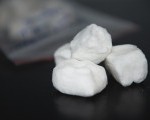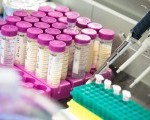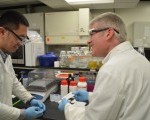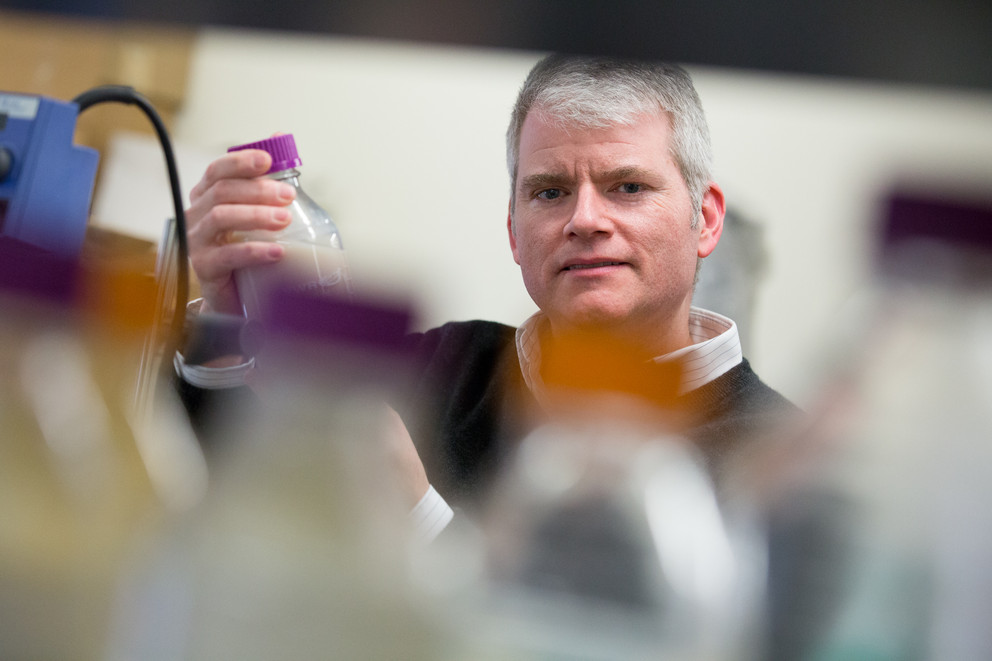About
- Applications of his research include sustainable packaging, construction materials, food products and biomaterials for healthcare
- Among his discoveries are a replacement for plastic film — an innovation that potentially can eliminate millions of tons of plastic used in laminates for packaging
Jeffery Catchmark’s research focuses on polysaccharide composite materials for healthcare, tissue engineering, food engineering and as a sustainable barrier material/adhesive alternative to synthetic polymers for packaging, food handling and construction materials. He also conducts research on cellulose and nanocrystalline cellulose formation and production, particularly from bacteria. Applications of his research include sustainable packaging, construction materials, food products and biomaterials for health care.
Among his discoveries are a replacement for plastic film — an innovation that potentially can eliminate millions of tons of plastic used in laminates for packaging — and barrier coatings designed to improve food performance by extending the freshness of bread and the crispness of fried foods.
In The Media
Is there life after plastic? The new inventions promising a cleaner world
from The Guardian May 2, 2018
Among those exploring alternatives to traditional plastics is Jeffrey Catchmark, professor of agricultural and biological engineering at Penn State University, who is plumbing the potential of naturally occurring polymers.
Academe pursues plastics replacement goals
from Plastics Today November 13, 2017
Catchmark said the goal of his research is to “take the last step now and make a real impact on the world, and get industry people to stop using plastics and instead use these natural materials” and give consumers a choice. “After the biomaterials are used, they can be recycled, buried in the ground or composted, and they will decompose. Or they can continue to use plastics that will end up in the oceans, where they will persist for thousands of years.”
Biodegradable Material Could Replace Most Plastic Used To Wrap & Preserve Food
from Clean Technica September 22, 2017
Jeffrey Catchmark, a professor of agricultural and biological engineering at the College of Agricultural Sciences at Penn State, has a better idea. After 10 years of research, he says he has come up with a biodegradable material that can be used in place of all that plastic packaging.
Penn State creates food packaging material from wood and shells
from Pittsburgh Post-Gazette October 24, 2017
In Penn State News

Developing a quick-acting foam for treating wounds on the battlefield
September 25, 2018

New biomaterial could replace plastic laminates, greatly reduce pollution
September 20, 2017

Better Blocker: New bio-absorbable medical foam headed to market
February 17, 2017




